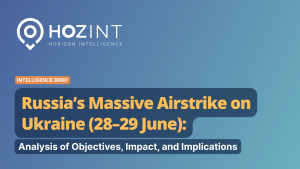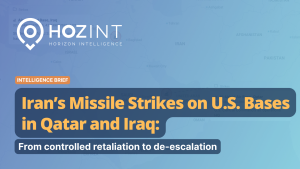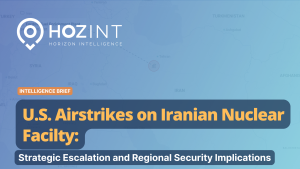Facts
On November 26, 2022, the US Treasury Department’s Office of Foreign Assets Control (OFAC) granted a license to Chevron Corporation authorizing the resumption of crude oil extraction in Venezuela. The license (GL 41) allows Chevron to resume the extraction, increase production, and participate in maintenance and repair related to such activities, as well as export the extracted heavy crude to the US market.
On January 10, 2023, Chevron announced that the first shipment containing 500,000 barrels of Venezuelan heavy crude had been sent from Lake Maracaibo to its Pascagoula refinery in Mississippi, in an operation that required a ship-to-ship transfer off the coast of Aruba due to logistical challenges. Since then, Chevron has reported multiple shipments averaging 75,000 barrels per day in January and 100,000 per day in February.
On February 2, during a public appearance president Nicolás Maduro criticized the conditions established by the OFAC in the GL 41, which prohibits Chevron from making dividend or royalty payments to the Venezuelan regime, instead only allowing certain payments related to repair and maintenance works of existing assets.
Analysis
Chevron will require a renewal of its GL 41 by May 2023 to continue operations in Venezuela, and despite an extension that is very likely to be granted, the existing condition itself discourages any significant investment to increase the current output beyond a projected 200,00 barrels per day. Instead, Chevron may concentrate its efforts on maximizing production with the existing assets with very limited investment due to the clear political risk outlook.
Petróleos de Venezuela (PDVSA) owes around USD 4 billion to Chevron from multiple joint ventures, meaning that at the current pace of production it would take at least two years to satisfy the debt. However, if Chevron’s JV is able to ramp up production it may face some type of quota limit by OFAC, in order to allow enough time to have a clearer electoral scenario in Venezuela for 2024.
Washington’s policy interest in easing sanctions overall is to signal concessions to Maduro’s regime in exchange for fairer conditions for the 2024 election in Venezuela. However, the negotiation channel came to a stall in November 2022, after no agreement was made as Maduro demanded access to frozen assets under opposition control.
On October 22, the Venezuelan opposition is expected to have its primary elections to convene on a single and unifying presidential candidate that will challenge Maduro. However, the fairness and competitiveness of the 2024 election are yet to be unfolded since the main issues with Chavismo are the well-known celebration of rigged elections and the level of ideological enrooting across all state entities.
The convergence of high political risk and the required investments to ramp up production significantly is the main issue impeding any additional engagement from Chevron in Venezuela.
Forecast
The OFAC will likely authorize an extension of Chevron’s GL 41 to continue limited operations in Venezuela for at least another six months. However, further investments like in new ventures or cash payments to PDVSA are unlikely to be authorized. Considering the current operational environment, Chevron is unlikely to cover the required investments to increase output above 200,000 barrels per day as there are no guarantees it will be able to have enough room to get an adequate return on investment.
Although the fairness and/or the result of the 2024 presidential election are yet to be known, there is a low probability that the opposition will attain power given the complexity and enrooting of the Chavista regime, and the foreseeable operational impediments the opposition is likely to face. Therefore, if the election does not earn sufficient international credibility the United States is likely to restore previously eased sanctions, including the suspension of Chevron’s GL 41.
Another emerging risk may be that the Maduro regime declines any further operations with Chevron, as he already complained about the conditions of GL 41, however, is it likely that the Venezuelan regime will prefer to not receive any dividends for a few years than to continue to have a chronic underproduction of crude and a worsened relation with Washington.
Finally, there have been multiple representatives from the oil and gas industry from the US who have criticized the Biden administration for increasing imports while constraining further investment from local producers (ref1, ref2, ref3). This criticism may increase the chances of a policy change toward the resumption of Venezuelan oil imports as it may impact the democrats’ image during the 2024 presidential voting.
By Luis Campos Perez, Editor in Chief – Americas Desk at Hozint – Horizon Intelligence




